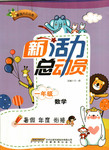题目内容
【题目】Directions: Read the following passage. Fill in each blank with a proper sentence given in the box Each sentence can be used only once. Note that there are two more sentences than you need.
A child at five is friendly, competent and obedient, although he may be naughty with other children and is sometimes sufficiently independent to call his mother names. He is still dependent on adult approval and praise, and so orientated to the grown-up that he tells tales without seeing the other child’s point of view. 【1】 Group play is often disturbed because everyone wants to be the mother of the bride or the captain of the fire brigade. Each child has an urgent need for constant contact with an adult in spite of all his efforts to be independent. In his unsureness he may make statements about his own cleverness and beauty, hoping hat the adult will praise him.
【2】 He can skip on alternate feet and can stand still on one foot for eight or ten seconds, and he can even hop on one foot for two or three yards. When he hears music whose rhythm appeals to him, he may dance in time to the tune. He can grip. strongly with either hand and may ride a tricycle so excitedly that he terrifies onlookers-needlessly, for he is now such an expert that the procedure is far safer than it looks.
He can count the fingers of one hand with the index finger of the other, and may count ten or more separate objects correctly.【3】 And he frequently asks the meaning of words which he hears for the first time. He can name coins and usually knows about four colors whose names he can employ in describing pictures.
He may need help and supervision in washing and drying himself although capable of doing both. 【4】 However, sometimes he may put it on back-to-front or inside-out occasionally. Many five-year-olds are still unable to tie their shoelaces and have difficulty with their ties or with inaccessible buttons. Children of this age will often play very well together in pairs with real co-operation while previously they tended to play rather independently although in close proximity. The games which they play on the floor are often complicated and Imaginative.
A. His vocabulary now runs to some 2,000 words, so he can communicate quite freely and easil with adults or other children.
B. By the time a child is five he Is usually able to run lightly on his toes and is skillful at all sorts of activities which involve swinging, digging and sliding.
C. Five-year-olds are often more capable than one might imagine so they deserve praising.
D. There is no real discussion yet-fives talking together in a“collective monologue”; quarreling with words
E. He can dress and undress himself quite quickly and is able to distinguish the back and front of his garment.
F. Children of this age are willing to play in twos or threes and as a result they are often engaged in mini talk.
【答案】
【1】D
【2】B
【3】A
【4】E
【解析】
本文是一篇说明文。主要介绍了五岁孩子的社交、语言、动作、计算等方面的发展特征。
【1】根据空前内容可知,五岁的孩子依赖于成年人的认可和赞扬,成年人单方面成导向,讲故事时没有考虑到其他孩子的观点。因此孩子们之间的没有真正的讨论,即是一种“集体独白”,且因为孩子们以个人为中心,集体游戏经常被打断,由此可知,D选项能衔接上下文。故选D。
【2】根据空后内容可知, 5岁孩子所能做到的各种活动,B选项(他通常能够用脚趾头轻快地跑,并且擅长各种各样的活动,包括摆动、挖掘和滑动)与孩子活动有关,故选B。
【3】根据本段的主要内容可知,5岁孩子能数数,询问第一次听到的单词,说出单词的意思等,这属于5岁孩子能够达到的认知和语言水平,故A选项(现在他的词汇量已经达到了2000个单词,所以他可以很轻松地和成年人或其他孩子交流)属于认知和语言范畴,故选A。
【4】根据空后内容可知,E选项衔接下文,他能很快地自己穿衣服和脱衣服,还能分辨衣服的前后。不过,有时他可能会把它前后颠倒,或偶尔从里到外,故选E。

 新活力总动员暑系列答案
新活力总动员暑系列答案 龙人图书快乐假期暑假作业郑州大学出版社系列答案
龙人图书快乐假期暑假作业郑州大学出版社系列答案